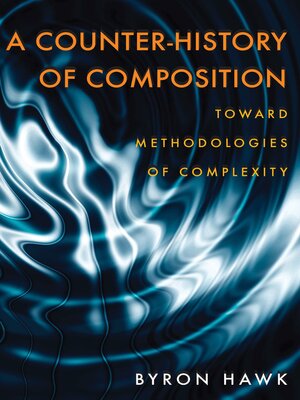A Counter-History of Composition
ebook ∣ Toward Methodologies of Complexity · Composition, Literacy, and Culture
By Byron Hawk

Sign up to save your library
With an OverDrive account, you can save your favorite libraries for at-a-glance information about availability. Find out more about OverDrive accounts.
Find this title in Libby, the library reading app by OverDrive.



Search for a digital library with this title
Title found at these libraries:
| Library Name | Distance |
|---|---|
| Loading... |
<i>A Counter-History of Composition</i> contests the foundational disciplinary assumption that vitalism and contemporary rhetoric represent opposing, disconnected poles in the writing tradition. Vitalism has been historically linked to expressivism and concurrently dismissed as innate, intuitive, and unteachable, whereas rhetoric is seen as a rational, teachable method for producing argumentative texts. Counter to this, Byron Hawk identifies vitalism as the ground for producing rhetorical texts-the product of complex material relations rather than the product of chance. Through insightful historical analysis ranging from classical Greek rhetoric to contemporary complexity theory, Hawk defines three forms of vitalism (oppositional, investigative, and complex) and argues for their application in the environments where students write and think today.Hawk proposes that complex vitalism will prove a useful tool in formulating post-dialectical pedagogies, most notably in the context of emerging digital media. He relates two specific examples of applying complex vitalism in the classroom and calls for the reexamination and reinvention of current self-limiting pedagogies to incorporate vitalism and complexity theory.







